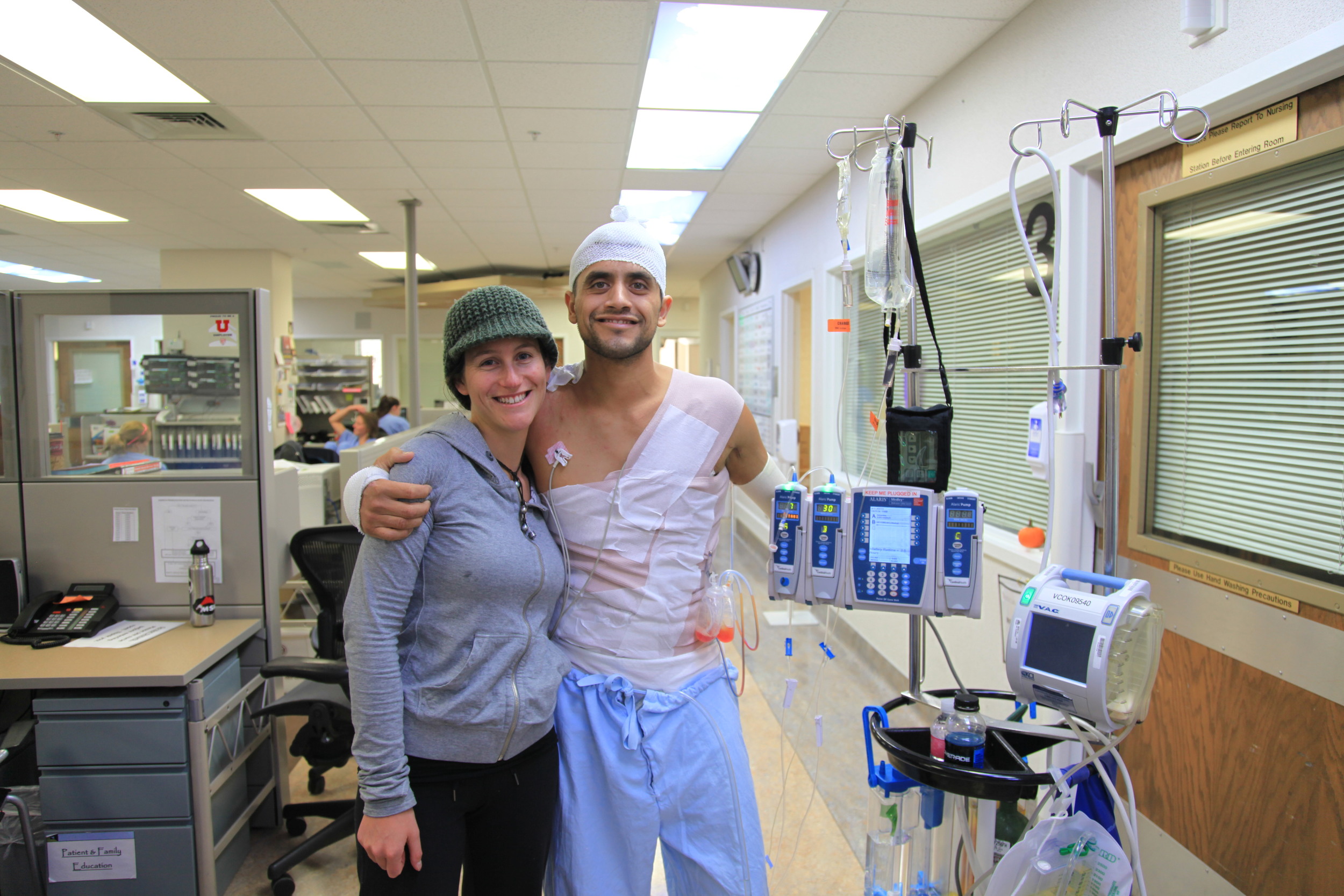Who Cares for the Caregiver?
By Jennifer Jane
“In the event of a decompression, an oxygen mask will automatically appear in front of you. Place the mask firmly over your nose and mouth, secure the elastic band behind your head, and breathe normally. If you are traveling with a child or someone who requires assistance, secure your mask first, and then assist the other person.”
We’ve all heard it, the safety speech we half listen to on the plane before take-off. At its core is a valuable life lesson, take care of yourself first, then, and only then, can you effectively can help others.
Most people think of the caregiver as the one who looks after the patient. This is true, but in reality it’s just as important for the caregiver to look after themselves. If you look after yourself first it makes the caregiving process so much easier… on everyone.
These are the key things that helped me take care of myself:
- Making healthy life choices.
- Identifying the positive things that made me happy and doing them as often as I could.
- Being honest about how I felt.
Make healthy life choices. Eat a salad, get outside, go to yoga, sleep.
Looking after myself first and making healthy life choices allowed me to have the stamina to be the best caregiver I could be. Doing this also made it easier for others to help me, my friends and family did not have to worry if I was making positive choices, they knew that I was, so they could focus on helping me deal with the real issues at hand, loving someone who had been massively injured, helping them enter a new phase of their life and working out how we would keep our home and our businesses.
First sleep in 48 days
Seeking a temporary and destructive solution to a permanent problem would have been the worst plan. It’s hard to force yourself to exercise when all you want to do is curl up in a ball and cry, or eat a healthy salad when all you want to do is binge eat sugar snacks. Our story could have easily been that Eduardo was injured and I started smoking or drinking heavily, turning to unhealthy habits to help numb the pain and disconnect from our new reality. Stay present and force yourself to make positive choices and those snowball into more positive things happening.
Secondly, identifying the positive things that made me happy and doing them as much as I could. Love, laugh, dance, write your story even if no one ever reads it and do something that relates to who you are.
Jen and Ed
I learned that to get through things you have to face them head on, even though it is crazy tough to do at the time.
I called my family and friends as much as I could, watched my favorite stand-up comics, I danced spontaneously, indulged in my creative writing and, of course, my English genes dictated that I drank a lot of tea! It was a ‘little and often’ approach - those little lifts here and there really helped me to look after myself.
Thirdly, be honest about how you feel. Don’t pretend.
It’s easy for people to say ‘be happy’, ‘get on with it’ in reality this is far more difficult and having a solid group of people, people you can “feel” with, people who you can be honest with is key. We all want to be strong and strength is important but so is recognizing your full range of emotions i.e. don’t pretend everything is okay when it is not.
After hand operation
It helps to share and it is always good to hear the perspectives of the people who care for you, they often see things in a different way and it helps you get your head around difficult things.
Overall, care for yourself first, it that makes it easier to care for someone else and for other people to help you. Eduardo looked after me, just as I looked after him. We definitely had tough moments, but making healthy choices, finding positives and being honest allowed us to stay in control and form an epic friendship through a time of despair.
We took care of ourselves and each other the best we knew how and when we look back at the whole process we remember moments of pain, but there was also happiness and joy. By caring for each other we set ourselves up to be in the best place to get back to life.



